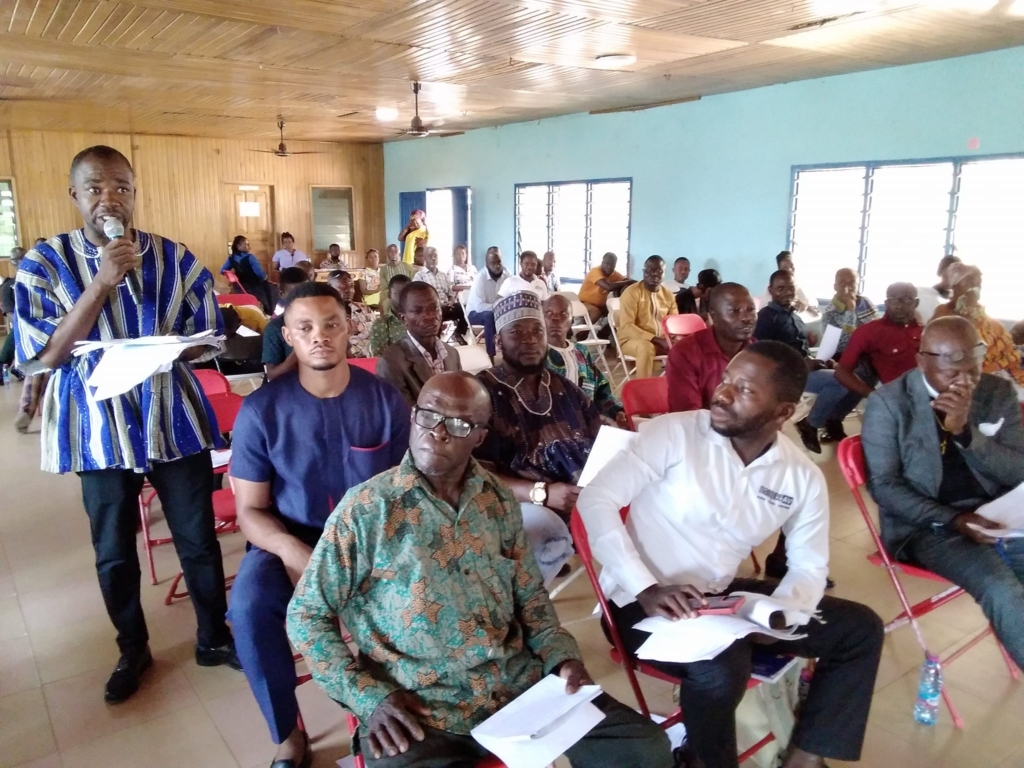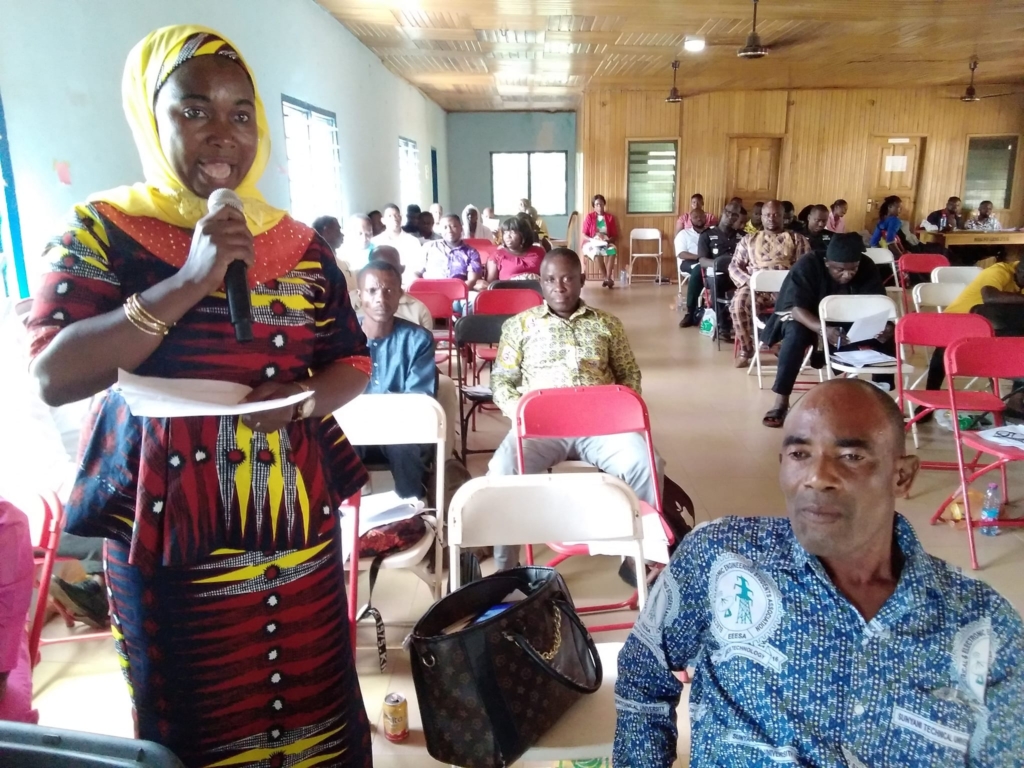A Governance and Entrepreneurship consultant, Victor Fosu-Boamah, says the President's power to appoint 30 per cent of district assembly members should be taken away and given to the National House of Chiefs.
According to him, successive Presidents have abused the power given to them to appoint assembly members.
He said this needs to be changed if the country is determined to achieve an effective and efficient decentralisation system.

Mr Fosu-Boamah suggested these in an interaction with journalists at a public forum on Ghana's decentralised system in Sunyani.
A consortium of civil society organisations operating within the Bono region organised the forum.

He stated that the power to appoint 30 per cent of assembly members was conferred on the President by the 1992 constitution.
However, political parties in power have used that to reward their members by appointing people who are incompetent to the assemblies.
He cited instances, especially during the reign of the New Patriotic Party (NPP) under President J.A. Kuffuor when such government appointees to the assemblies were sacked or removed en bloc to pave the way for the President to appoint a new set of people only to vote to approve his nominees for the position of District Chief Executive (DCE).

He added that after the approval of the President’s nominee for DCE, the sacked DCEs were re-appointed by the President, which was not helpful to the country's decentralisation process.
Mr Fosu-Boamah recommended that the roles of the Regional Co-ordinating Councils (RCCs), especially in resource allocation, should be revised.
He noted that the responsibilities assigned to and undertaken by the RCCs far outweighed the resources allocated for that purpose.
He said that made it extremely difficult for the RCCs to discharge these assignments, a situation that portrays RCCs as ineffective in performing their functions.
He stated that the passage of the Legislative Instrument (LI) 1961 is significant in the country's local government system.
He added that if the decentralisation system is implemented fully, it will create employment to absorb more unemployed graduates at the district level, which could also bring about a remarkable improvement in the living conditions of the people.
Latest Stories
-
Kounde strike wins Copa del Rey final for Barcelona
3 hours -
Is NPP crying more than the bereaved in the Chief Justice saga?
4 hours -
“Elements within NPP worked against me for supporting ‘Ken must go'” – Cynthia Morrison
5 hours -
IMF Boss commends finance minister for strong commitment to economic reform
5 hours -
Cynthia Morrison advises Ghanaian women to diversify their skills to build wealth
5 hours -
UK deports 43 immigration offenders to Ghana and Nigeria
6 hours -
Piwak Natural Health urges Akosombo victims to rebuild with new donation
6 hours -
Ghana’s Para athlete Gilbert Ampiah wins bronze at Marrakech Grand Prix 2025
6 hours -
6 dead in Adansi Dompoase crash involving VIP bus and sprinter
7 hours -
Saturday’s heavy rainstorm caused outages within our network – ECG
7 hours -
Police arrest 3 over gold robbery at Wassa Afransie
8 hours -
Against all odds: Zinabu Issah clinches silver for Ghana at WPA Marrakech 2025
9 hours -
ASFC 2025: Ghana girls complete host-and-win mission after beating Uganda
9 hours -
NPC President congratulates new GOC Executives
9 hours -
Stonebwoy displays maturity amid Aisha Modi’s attacks: a masterclass in brand integrity and respect
9 hours

